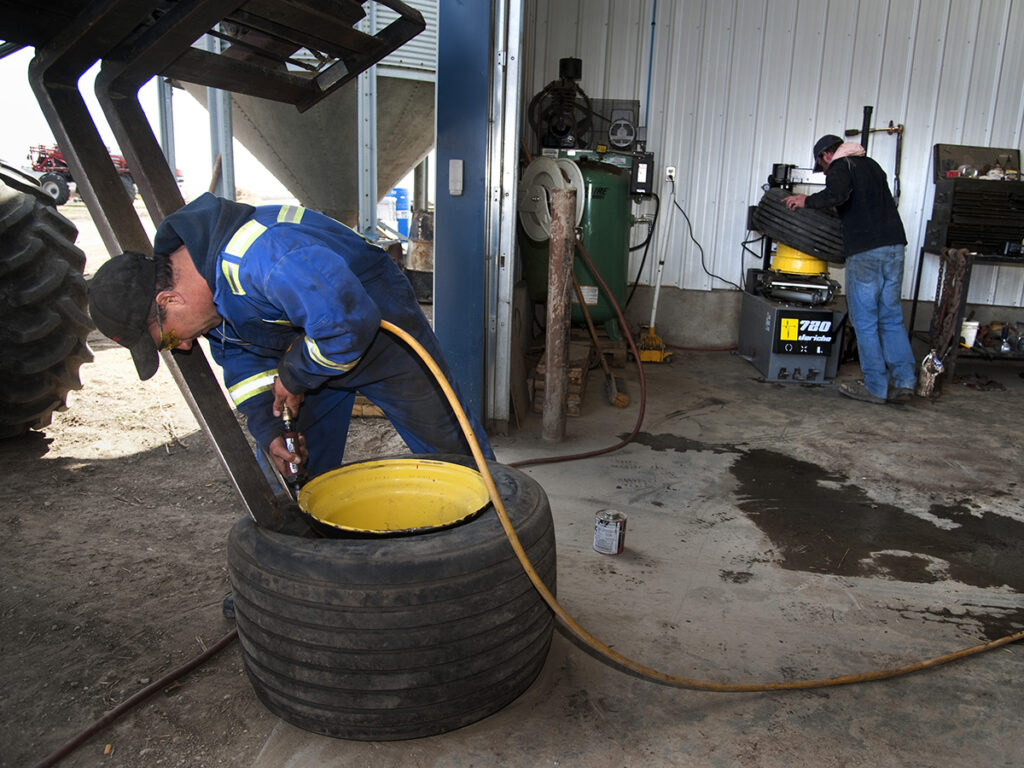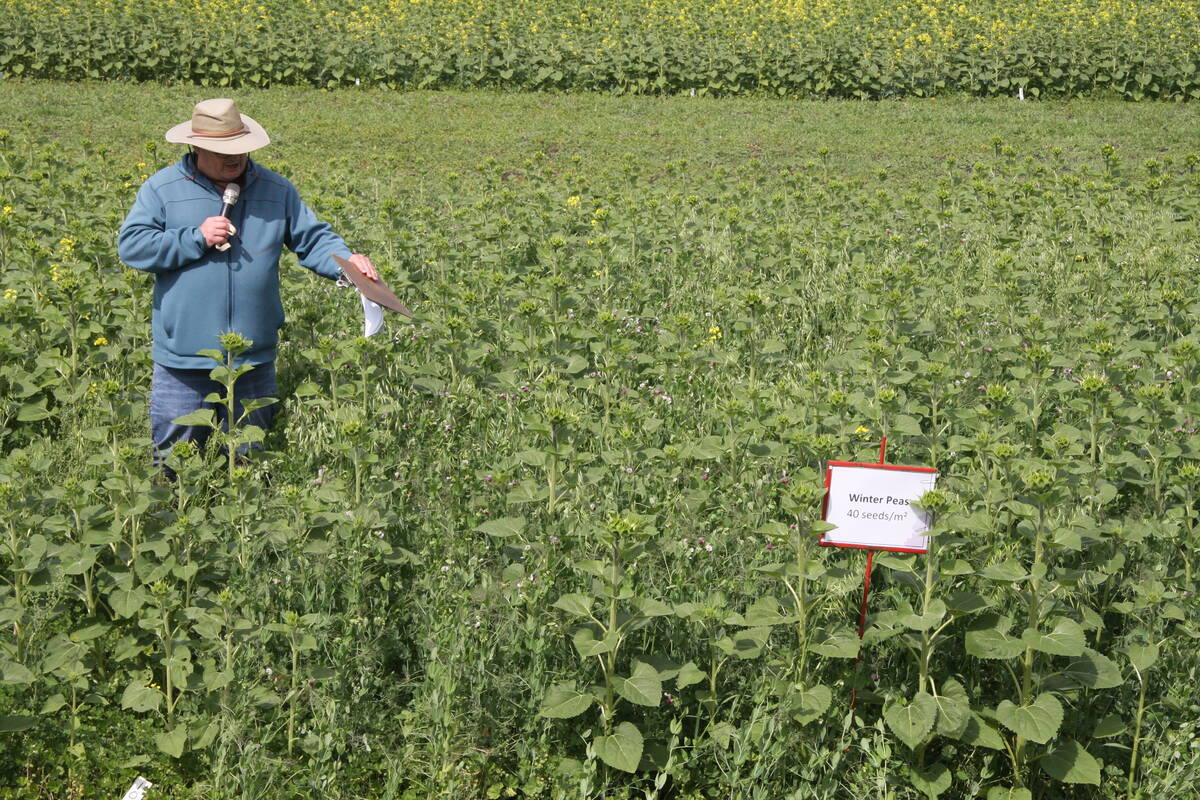From field to ear: addressing hearing loss on Canadian farms

Glacier FarmMedia – Farmers spend countless hours tending to their properties and animals, which, for all its benefits, can have a serious drawback: adult farmers are more likely to have hearing loss problems than non-farming adults. Years of noise due to heavy machinery, equipment and animals could lead to noise-induced hearing loss (NIHL), causing permanent hearing damage.
Noise-induced hearing loss is a side effect of continuous exposure to high noise levels. On a farm, various factors can cause NIHL. These include, but are not limited to:
- Tractors
- Power tools
- Ventilation fans
As a benchmark, consider that the louder and more prolonged the noise, the faster it can cause hearing damage. NIHL is largely painless and progressive, meaning the full effects of this condition may not arise for some time.
Signs of hearing loss
Read Also


Is agriculture extension working in Canada?
Canada’s system of getting the latest and most useful information to farmers is very different from what happens in the United States.
Hearing loss may not be obvious right away. However, there are some signs that can point to this condition. These include:
- Hearing a distorted or muffled sound after a loud noise has occurred.
- Ringing in the ears, also known as tinnitus.
- Interpreting talking sounds as mumbling.
- Feeling increased pressure in the ears.
- Experiencing difficulty hearing high-pitched noises.
Temporary hearing loss and NIHL are not one and the same. For example, if farmers are exposed to loud noises infrequently, their hearing can be maintained despite temporary hearing loss. NIHL happens when ears aren’t given time to recover, leading to a more permanent condition. It’s worth noting that if someone finds they are getting used to continuous loud noise, that’s another sign of NIHL.
Impact of hearing loss
A decibel is how sound and its intensity are measured. A safe decibel range is 60 decibels (dB) or less. Even long exposure times at this level will not damage hearing. Hearing protection is recommended once the noise reaches 85 dB, where damage can start to occur after several hours. The maximum exposure time at a given decibel level is cut in half with each 3dB increase. Moreover, 120 dB is when the noise is so loud that it causes pain. If it reaches 160 dB, it could lead to instant damage
Hearing loss doesn’t just affect the ears. It can have serious effects on other parts of the body and overall functioning. Farmers with NIHL may experience:
- Loss of concentration
- Increased stress
- Disrupted sleep
- Occasional ringing in the ears
- Increased blood pressure
These disruptions can change working conditions and overall productivity, potentially leading to injury if not carefully managed. The worse a farmer’s hearing loss is, their chance of an injury requiring medical treatment increases by one per cent.
How can farmers protect their hearing?
A farm can be a boisterous place, especially during busier times like seeding or harvesting, but there are many ways farmers can protect their hearing.
Remove or replace the cause of noise
Some equipment or machinery such as chainsaws, leaf blowers, or tractors can cause hearing loss issues if someone is exposed for a long period or if they are used simultaneously with other equipment. Using one machine at a time, using loud machinery in different areas or finding a quieter substitute can all help reduce NIHL.
Sound meters
A sound meter can measure the surrounding noise and provide information on the decibel levels and how long it is safe to be exposed to them. With advancements in technology, sound meters can now be installed directly on smartphones, providing reliable information to protect hearing.
Hearing protection
One of the most effective and straightforward ways to protect hearing on the farm is by investing in quality hearing protection. Farmers can choose from a variety of hearing protection options:
- Earplugs: Available in reusable silicone or disposable foam, they offer a lightweight, comfortable fit for long hours.
- Noise-cancelling earmuffs: Provide adjustable noise reduction. Ideal for louder machinery or prolonged exposure.
- Custom-molded earplugs: Designed for a perfect fit, they offer maximum comfort and protection.
With these solutions, there is no need to modify how machinery is used or to change work habits. Hearing protection also offers balanced protection, reducing harmful noise levels from tractors, combines and other equipment while allowing critical sounds — like alarms, malfunctions, or coworker calls — to be heard.
Protecting hearing for years to come
Addressing hearing loss remains critically important for farmers who dedicate their lives to their professions. Part of this means understanding what can cause NIHL and taking proactive steps to mitigate risks throughout the farm. With proper measures in place, farmers can remain aware of their surroundings and continue to complete their tasks as needed. Further, regular use of hearing protection significantly reduces the risk of noise-induced hearing loss, preserving hearing for years to come.
If you’re at high risk of hearing damage, it is advisable to have your hearing checked regularly and advocate for proper hearing protection in your workplace. For more information on different types of hearing loss and education resources, you can visit HearingLife.ca or one of their locations across Canada.
Katie Koebel, M.Cl.Sc., is the Senior Manager of Audiology at HearingLife, Canada’s largest group of hearing centres with over 350 locations across the country. HearingLife clinics use the most advanced hearing aid technology, clinical support, and diagnostic equipment. Katie is an audiologist registered with CASLPO and has been providing her clients with the best possible hearing health care with HearingLife for over 17 years.
Source: www.producer.com


